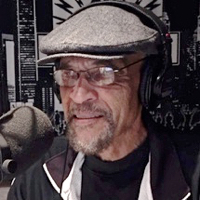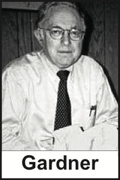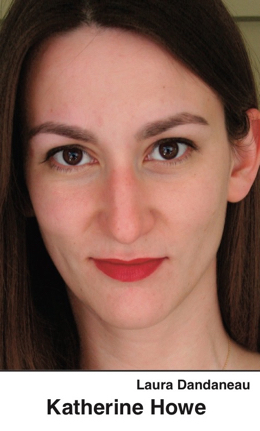Rascals case in brief
In the beginning, in 1989, more than 90 children at the Little Rascals Day Care Center in Edenton, North Carolina, accused a total of 20 adults with 429 instances of sexual abuse over a three-year period. It may have all begun with one parent’s complaint about punishment given her child.
Among the alleged perpetrators: the sheriff and mayor. But prosecutors would charge only Robin Byrum, Darlene Harris, Elizabeth “Betsy” Kelly, Robert “Bob” Kelly, Willard Scott Privott, Shelley Stone and Dawn Wilson – the Edenton 7.
Along with sodomy and beatings, allegations included a baby killed with a handgun, a child being hung upside down from a tree and being set on fire and countless other fantastic incidents involving spaceships, hot air balloons, pirate ships and trained sharks.
By the time prosecutors dropped the last charges in 1997, Little Rascals had become North Carolina’s longest and most costly criminal trial. Prosecutors kept defendants jailed in hopes at least one would turn against their supposed co-conspirators. Remarkably, none did. Another shameful record: Five defendants had to wait longer to face their accusers in court than anyone else in North Carolina history.
Between 1991 and 1997, Ofra Bikel produced three extraordinary episodes on the Little Rascals case for the PBS series “Frontline.” Although “Innocence Lost” did not deter prosecutors, it exposed their tactics and fostered nationwide skepticism and dismay.
With each passing year, the absurdity of the Little Rascals charges has become more obvious. But no admission of error has ever come from prosecutors, police, interviewers or parents. This site is devoted to the issues raised by this case.
On Facebook
Click for earlier Facebook posts archived on this site
Click to go to
Today’s random selection from the Little Rascals Day Care archives….
Click for earlier Facebook posts archived on this site
Click to go to
Today’s random selection from the Little Rascals Day Care archives….
Holdout jurors face – and often succumb to – relentless pressure

facebook.com
Earl Ofari Hutchinson
Dec. 28, 2016
“The problem of juror pressure on a dissenting juror has long been known by defense attorneys and prosecutors.
“In a National Center for State Courts project on hung juries, researchers surveyed 367 unanimous decisions…. In nearly 40 percent of the cases at least one juror [disagreed] but went along with the majority and made the verdict unanimous….
“Research shows that dissenting jurors often go along not because they are convinced about points of evidence but because they bow to ‘normative pressure’: A lone holdout is under relentless and harsh pressure from other jurors to knuckle under. The pressure from the push for speed, the verbal battering and the threat of ostracism is virtually impossible to resist.
“The problem is made worse [in cases] when it’s impossible for a dissenting juror to say with absolute certainty whether the position of the majority is the right one and when the verdict could do horrible legal damage….”
– From “Why Zimmerman Juror B29 Believed in His Guilt But Still Voted to Acquit” by Earl Ofari Hutchinson on the Huffington Post (July 28, 2013)
Bob Kelly’s jury serves as a sad example of the contaminated chemistry of verdict making.
![]()
How were defendants so skillful at dressing kids?
Nov. 30, 2011
 “You have to start with the matter of probability. What every one of these (day care sex abuse) cases has in common is that no adult observer has actually seen a molestation in progress.
“You have to start with the matter of probability. What every one of these (day care sex abuse) cases has in common is that no adult observer has actually seen a molestation in progress.
“Supposedly, these abuses are going on continually over a period of months. Almost always, they supposedly involve a number of adults and many children, with outsiders constantly walking in and out of these centers. Yet we have no corroborating eyewitnesses. None….
“Throughout it all, these children somehow always come home in the right shoes and socks and underpants. Do you have kids? Do you realize how hard it is to dress two kids in a hurry without some kind of mix-up, let alone 10 or 12 or 20 kids?”
– Dr. Richard A. Gardner, clinical professor of psychiatry at Columbia University, quoted in Playboy magazine (June 1992)
Honk if you believe that….
 July 20, 2012
July 20, 2012
… Little Rascals parents were caught up in a frenzy of panic and misinformation.
… Ill-prepared therapists served prosecutors, not their patients.
… In their zeal for convictions, prosecutors behaved cruelly and unethically.
… 20th century North Carolina never saw a more sweeping injustice.
… Bob and Betsy Kelly, Dawn Wilson, Shelley Stone, Robin Byrum, Darlene Harris and Scott Privott deserve full and unequivocal exoneration.
Day-care cases rooted in ‘sense of powerlessness’?
 Jan. 17, 2015
Jan. 17, 2015
Q: Do you have a better understanding of why people act the way they do in certain situations?
A: ….Whenever the safety of children is perceived to be in question, we run the risk of responding with emotion rather than reason. Certainly in Salem (where three of her ancestors were accused witches) that was the case. And look at the so-called “satanic ritual abuse” pre-school phenomenon in the early 1980s, which is now seen to have been a tremendous miscarriage of justice. Calls for moderation are dismissed with the assertion that the children have to come first — which, of course, they should.
“But it’s also tempting to read these experiences as expressive of a deeper anxiety about childrearing in an uncertain world, with no guarantees of a good outcome. I feel that it comes from a sense of powerlessness that can’t be expressed elsewhere….”
– From an interview with Katherine Howe, author of “Conversion,” a novel based on a mysterious 2012 outbreak of tics and seizures among teenage girls in upstate New York, in the Daily News of Batavia, New York (Aug. 23, 2014)











0 CommentsComment on Facebook